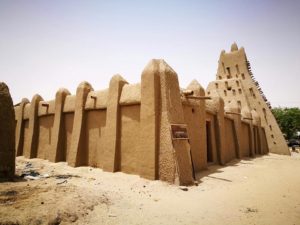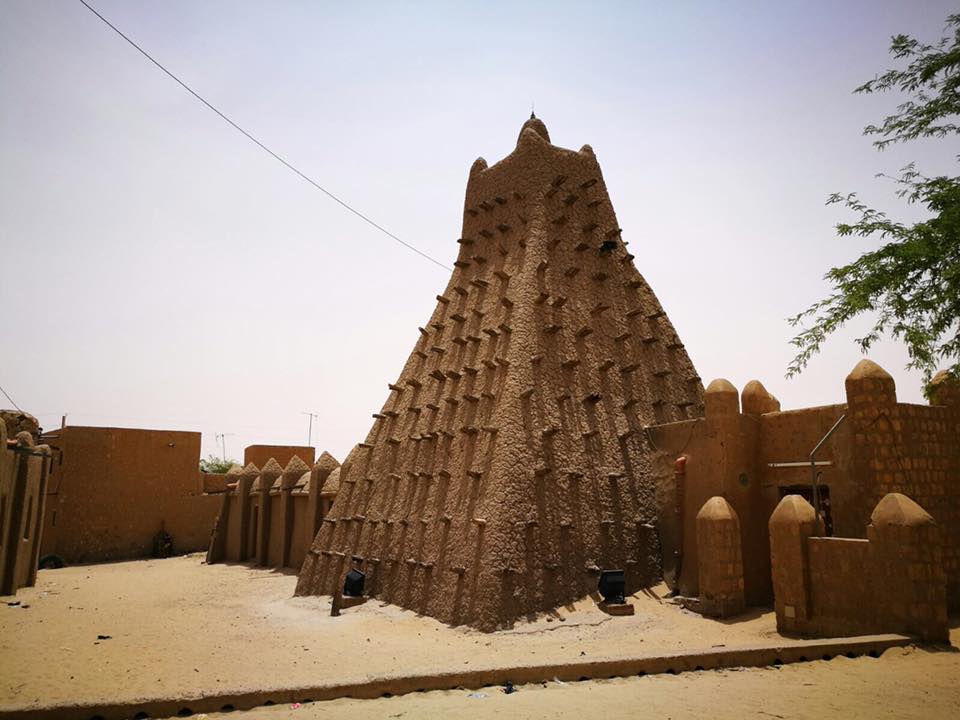
On a mission to Mali, we flew to Timbuktu. It was at a time when foreigners would be abducted but threats were equally made to Malians.But I did not want to leave without having had at least a glimpse of the famous mosque of Djinguereber. Lucky enough when we were walking around outside, the head of the local museum adjacent to the mosque asked us if we were interested in a tour. The mosque is entirely built out of natural material such as straw and wood. He explained that many tourists came to visit but now, with the threat of armed groups, no one comes anymore. The mosque was a major cultural center where scholars from all over the world came to learn and exchange ideas. It existed since 1327. Until today, many scriptures from that time period exist but were about to be destroyed. Our tour guide explained us that he was able to save some of the old scriptures from the archives by hiding it under the sofas and cupboards when the armed groups came to loot. Months later, ants had come to eat these texts but many were saved and are now back in the museum. In Germany, we have a saying that means going to Timbouktu means going to the end of the world. It did feel like that – with the empty streets around the mosque and everything covered in sand but it was once the center, and it was just such a peaceful and stunning place when you were inside, that it did not feel like the end of the world. But the Tuareq that I met in my short encounter told me stories of a different past. Hundreds of tourists would come every year from Europe to Timbuktu. Some of these men now sitting in front of me selling their jewellery in their turbans and traditional clothes spoke English and even German well as they travelled to Europe to organise these tourist groups from there. Its difficult to imagine but the security has worsened drastically. No international staff are allowed to travel outside of the capitals.





308 Comments